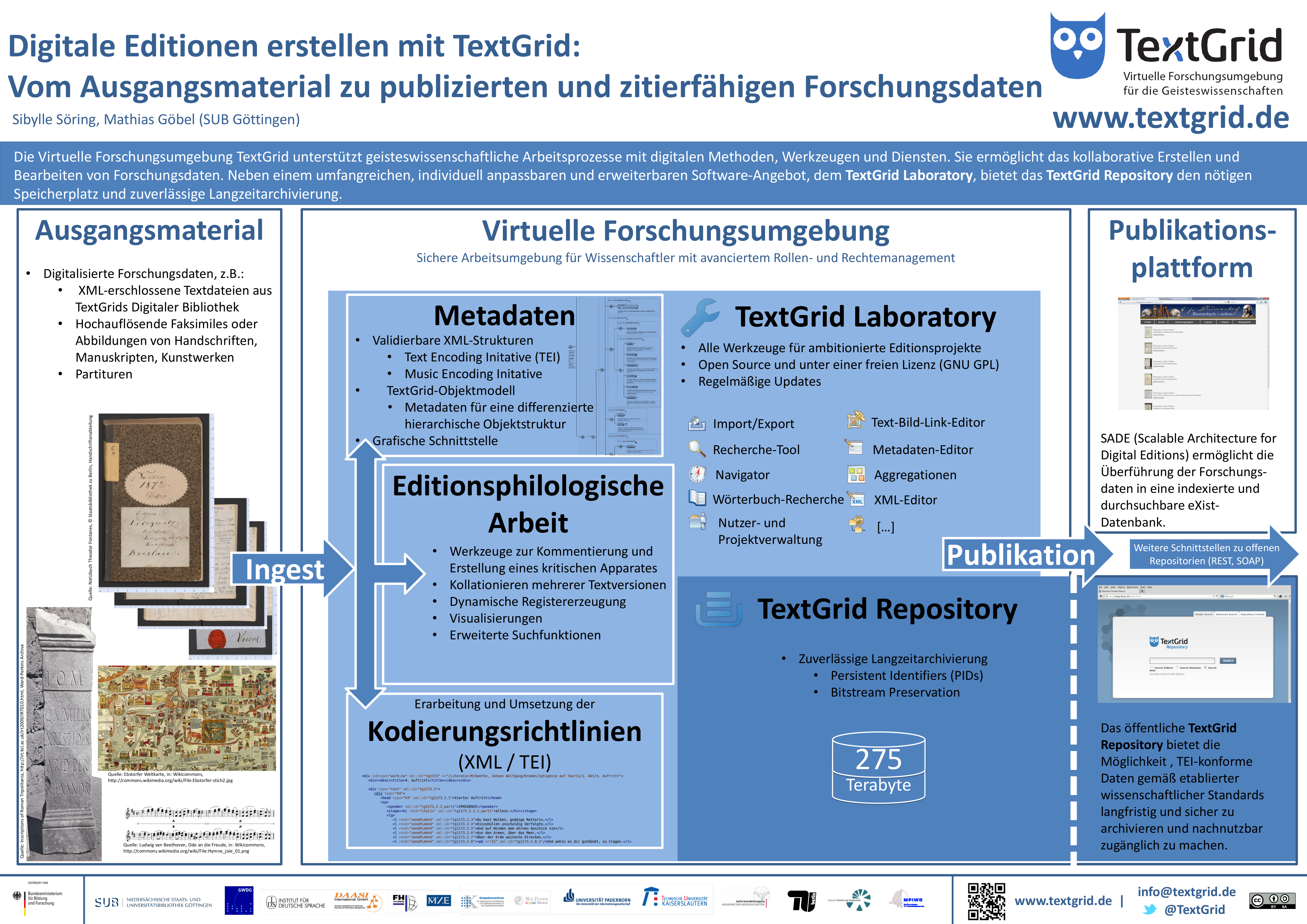Breadcrumb
- Services
- Tools and Services
- Textgrid Laboratory
TextGridLab
Laboratory 
Virtual research environment for the humanities
Description
The TextGridLab and the TextGridRep have been developed in collaboration with humanities scholars and reflect the needs of researchers who want to explore the scientific possibilities offered by digital methods individually or in a community of geographically distributed scientists. Many of the humanities' projects deal with increasingly complex research questions and large data sets appeal to scientists with different backgrounds and experiences. Interdisciplinary research and collaborative partnership are simplified by using an integrated workspace, such as TextGrid, where project and user administration is an integral component. With the use of TextGrid, researchers can collaborate comfortably and productively in a secure environment where research data are stored safely and reliably. The tools and services available in TextGrid are flexible and expandable and can be adapted to different research methods. In addition, these tools are maintained and updated to ensure long-term availability and usability of the research data.
A virtual research environment like TextGrid allows new forms of collaboration and research in a secure and reliable workspace.
The TextGrid Laboratory, together with the TextGrid Repository, is a diverse research environment. The TextGridLab includes various tools and services that you can access to create, manage, and edit research data. The TextGridLab offers the possibility to collaboratively edit and generate research data in a protected environment. The Open-Source-Software is available for Windows, Mac OS X, and Linux. Other open source tools and services optimized for use with TextGrid can be integrated via the MarketPlace integrated into the TextGridLab (access via the start window of the TextGridLab). Thanks to the modular open-source architecture of the software, the tools and services provided by TextGrid can also be adapted to specific project-specific requirements. At the heart of the third funding phase (2012-2015) was the transfer of the virtual research environment into the long-term sustainable operation. TextGrid is freely available as part of the DARIAH infrastructure.
Advantages
-
Decentralized work area: Users can access the TextGridLab and the TextgridRep independently of the location and work together in complex research projects.
-
Standardization: The controlled metadata vocabulary and open standards facilitate the exchange of data, text search, and digital archiving.
-
Extensibility: TextGrid is extensible and allows users to improve existing tools or integrate new tools and services.
-
Modularity: The TextGridLab is modular, the XML editor serves as a core element on which the virtual research environment builds. Numerous tools and services are linked to the XML editor and arranged and combined according to the individual needs of the project.
-
User Rights Assignment: TextGrid provides a sophisticated, roll-based access control to manage user rights.
To the tool
Click here to go to the download page of the TextGrid Lab.
Used data
U.a. Digital library / TextGrid Repository
Tools included
TextGrid Tools and Services: XML-Editor, Text-Bild-Link-Editor, Metadaten-Editor, Text-Text-Link-Editor, Dictionary research tool, DigiLib, MEISE, Aggregation Composer, User and project management, Lemmatizer, COSMAS II, LEXUS
Footer Standarddienste
Are there still unresolved issues or would you like further information? You can reach us at info@de.dariah.eu.



